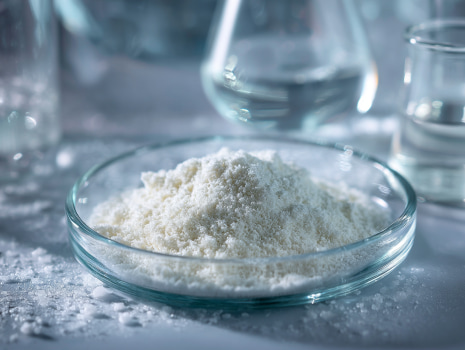Hydroxyethyl cellulose (HEC) might not roll off the tongue for everyone, but this versatile compound is a powerhouse in the world of manufacturing and formulation. If you’re in the market for a thickening agent, a stabilizer, or a film-forming agent, you’ve likely come across HEC. This article will break down what HEC is, its key features, its various applications, and some common questions people have about it.

What is Hydroxyethyl Cellulose?
So, what exactly is hydroxyethyl cellulose? In simple terms, it’s a type of cellulose, which is a natural polymer derived from plant cell walls. Basically, it’s a modified version of cellulose that has been chemically altered to enhance its properties. The “hydroxyethyl” part comes from the addition of hydroxyethyl groups, which give this compound its unique characteristics.
HEC is typically a white, odorless powder that forms a thick gel when mixed with water. It’s important to note that even though it’s derived from natural sources, it undergoes a chemical modification process, so it’s not exactly the same as the cellulose you’d find in a piece of paper or wood.
What makes HEC so appealing is that it’s incredibly versatile. It can be used in various applications, from personal care products to industrial solutions. Whether you’re whipping up a new lotion or formulating a paint, HEC plays a crucial role in ensuring that your product has the right consistency and stability.
[Related: What is Methyl Cellulose (E461)?]
Key Features of Hydroxyethyl Cellulose
Now that we know what HEC is, let’s talk about some of its standout features.
🔹 Water Solubility: One of the main attractions of HEC is its ability to dissolve in water. Unlike some other thickening agents that need heat to dissolve, HEC is soluble in cold water. This makes it super convenient for formulators because they can mix it in without additional heating steps.
🔹 Thickening Properties: HEC is a fantastic thickener. It can increase the viscosity of a product without significantly affecting its other properties. This means it helps give products that desirable, creamy texture that people love in lotions, shampoos, and other similar products. You know that feeling when you squeeze a bottle and the product just glides out? That’s HEC at work.
🔹 Stabilization: HEC helps stabilize emulsions, which is critical in products that contain both oil and water. By keeping these components mixed, HEC ensures that your product remains consistent over time.
🔹 Film Formation: This compound can form a flexible film on surfaces, which is particularly useful in personal care products like hair gels and lotions. It helps lock in moisture and provides a smooth application.
🔹 Biodegradability: Since HEC is derived from cellulose, it’s biodegradable, making it a more environmentally friendly option compared to some synthetic alternatives.
🔹 Eco-friendly: Being derived from natural cellulose means that HEC is biodegradable, making it an environmentally friendly option compared to many synthetic thickeners.
With these features in mind, it’s easy to see why HEC has become a go-to ingredient in many industries.

What is Hydroxyethyl Cellulose Used For?
The applications of hydroxyethyl cellulose are vast and varied. Here are some of the most common uses:
1. Personal Care Products
HEC is widely used in personal care formulations like shampoos, conditioners, lotions, and creams. Its thickening and stabilizing properties help create a desirable texture and ensure that the product remains uniform. For instance, in lotions, HEC can provide that silky feel while preventing separation.
2. Pharmaceuticals
In the pharmaceutical industry, HEC is often used as a binder and thickener in various formulations, including gels and ointments. Its ability to hold moisture helps in drug delivery, making it a crucial ingredient in many medications.
3. Food Industry
Believe it or not, HEC also finds its way into the food industry! It’s used as a thickening agent and stabilizer in sauces, dressings, and even bakery products. Its ability to enhance texture and mouthfeel makes it a popular choice among food manufacturers.
4. Construction
In construction, HEC is used in cement and mortar formulations. It helps improve workability and adhesion, making it easier to apply and ensuring durability once set.
5. Paints and Coatings
HEC is often added to paints and coatings to improve viscosity and stability. This ensures that the paint spreads evenly and adheres well to surfaces, providing a smooth finish.
6. Household Products
You’ll even find HEC in various household products like cleaners and detergents. It helps enhance the texture and performance of these products, making them more effective and easier to use.
As you can see, hydroxyethyl cellulose is a jack-of-all-trades, showing up in everything from beauty products to building materials.
[Related: What Is Carboxymethyl Cellulose (CMC)?]
FAQs
1. Is Hydroxyethyl Cellulose Harmful?
When used as intended, hydroxyethyl cellulose is generally recognized as safe. It’s important to note that this compound is non-toxic and non-irritating for most people. However, like with any ingredient, some individuals may experience sensitivities or allergic reactions. Always do a patch test if you’re unsure about how your skin will react, especially with personal care products.
2. Is Hydroxyethyl Cellulose Safe for Skin?
Absolutely! Hydroxyethyl cellulose is commonly used in skincare products, and it’s considered safe for application on the skin. Its gentle nature makes it suitable for a wide range of formulations, from sensitive skin to more robust products. If you have specific concerns about skin reactions, consult with a dermatologist, but for most people, HEC is perfectly fine to use.
Conclusion
In conclusion, hydroxyethyl cellulose is a multifunctional ingredient that is vital in many industries. Its unique properties make it a popular choice for formulators looking for reliable thickening, stabilizing, and film-forming agents. With a solid understanding of HEC and its applications, you can confidently incorporate it into your next project. And when you’re ready to source high-quality HEC, remember Melacoll is just a click away!

Hydroxyethyl Cellulose Supplier
If you’re looking for a reliable HEC supplier, Melacoll™ has you covered. As a trusted brand under MIKEM, we specialize in high-purity hydroxyethyl cellulose for various industries. Our commitment to quality and customer satisfaction sets us apart in the industry. Here’s why our clients stick with us:
🏅 Consistent Quality – Every batch meets strict standards.
🏅 Custom Solutions – Need a specific viscosity or grade? We can tweak it.
🏅 Industry Expertise – Decades of experience in cellulose derivatives.
🏅 Global Supply – Fast, reliable shipping wherever you are.
Whether you’re formulating a new cosmetic, improving paint performance, or developing pharmaceuticals, Melacoll HEC delivers the performance you need.
When you choose Melacoll, you’re opting for a brand that values excellence and innovation. Let us help you elevate your products with our top-notch hydroxyethyl cellulose and other cellulose derivatives.

